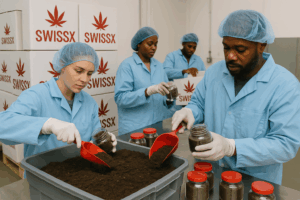FIFA's evaluation endorses Saudi Arabia's hosting of the 2034 World Cup as a potential catalyst for human rights improvements, despite critiques from various organizations about the kingdom's history of abuses. The report also discusses environmental sustainability, acknowledging serious concerns regarding the tournament's climate impact.
Saudi Arabia's World Cup Bid: A Path for Human Rights and Environmental Critique

Saudi Arabia's World Cup Bid: A Path for Human Rights and Environmental Critique
FIFA's report praises Saudi Arabia's bid for the 2034 World Cup, yet human rights groups raise alarms over the kingdom's record.
The recent FIFA evaluation of Saudi Arabia's unopposed bid to host the men's World Cup in 2034 has reignited discussions about human rights and environmental standards in the Gulf kingdom. With an impressive score of 4.2 out of 5, the highest score ever given, FIFA has laid the groundwork for formally awarding the tournament to Saudi Arabia next month. The organization made a bold claim that holding the tournament could act as a "catalyst" for improvements in the country’s human rights situation, despite a longstanding history of violations.
FIFA rated the human rights risk associated with the tournament as "medium," which quickly drew criticism from campaign groups. Activists pointed out that Saudi Arabia's notorious human rights abuses—including the 2018 assassination of journalist Jamal Khashoggi, gender inequalities, and ongoing restrictions on free speech—contradict FIFA's optimistic evaluation. Human rights watchdogs such as Amnesty International have called the report a "whitewash," asserting that significant reforms are necessary to protect the rights of workers and residents if the tournament is to proceed without exacerbating human rights abuses.
Moreover, FIFA commendably categorized Saudi Arabia's commitment to sustainability as "good," signaling a low risk concerning environmental protections. The report highlights the challenge posed by the kingdom's extreme summer temperatures, admitting a need for careful scheduling to avoid excessive heat. Despite this, Saudi officials are optimistic about the logistics of hosting the event, pledging cooperation to determine an optimal competition timing similar to Qatar's winter adaptation in 2022.
While the FIFA report acknowledges plans for 15 stadiums and the recognition of environmental impacts associated with transportation and construction, it cites the anticipated carbon footprint of the 2030 tournament in neighboring countries as having "a significant negative impact on the climate." This raises further questions about the integrity of sustainability claims made by the organizers.
Saudi Arabia's investment in sports has surged to approximately £5 billion since 2021, highlighting a broader strategy under Crown Prince Mohammed bin Salman's “Vision 2030,” aimed at diversifying the economy and enhancing the nation’s global image. But this financial commitment—combined with high-profile sporting events—has been perceived as an attempt to mitigate its tainted reputation internationally.
Saudi sports minister HRH Prince Abdulaziz bin Turki Al Faisal expressed optimism about the potential of the FIFA report to illustrate the kingdom's dedication to transforming sports and culture. He emphasized their commitment to creating a world-class tournament, extolling the comprehensive planning behind the bid.
As preparations move forward, numerous NGOs and human rights organizations continue to sound alarms about the implications of hosting the World Cup in Saudi Arabia. They urge FIFA to impose stricter human rights assurances and express worry that without fundamental reforms, the 2034 World Cup may be marred by exploitation and discrimination.



















